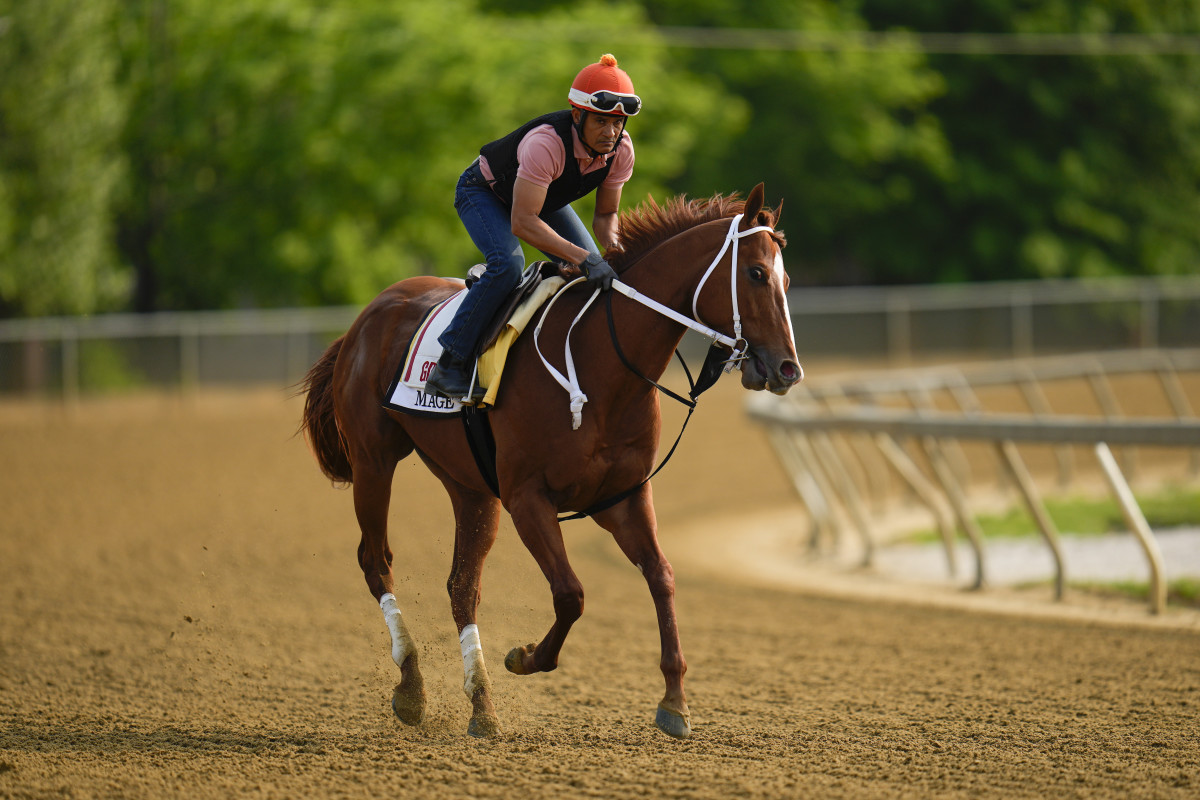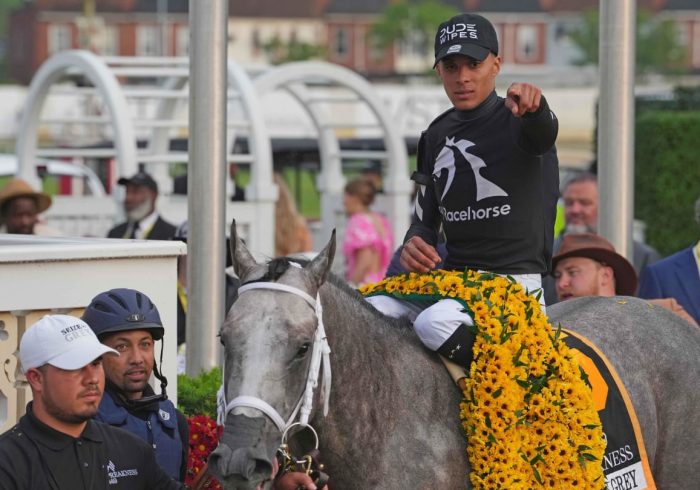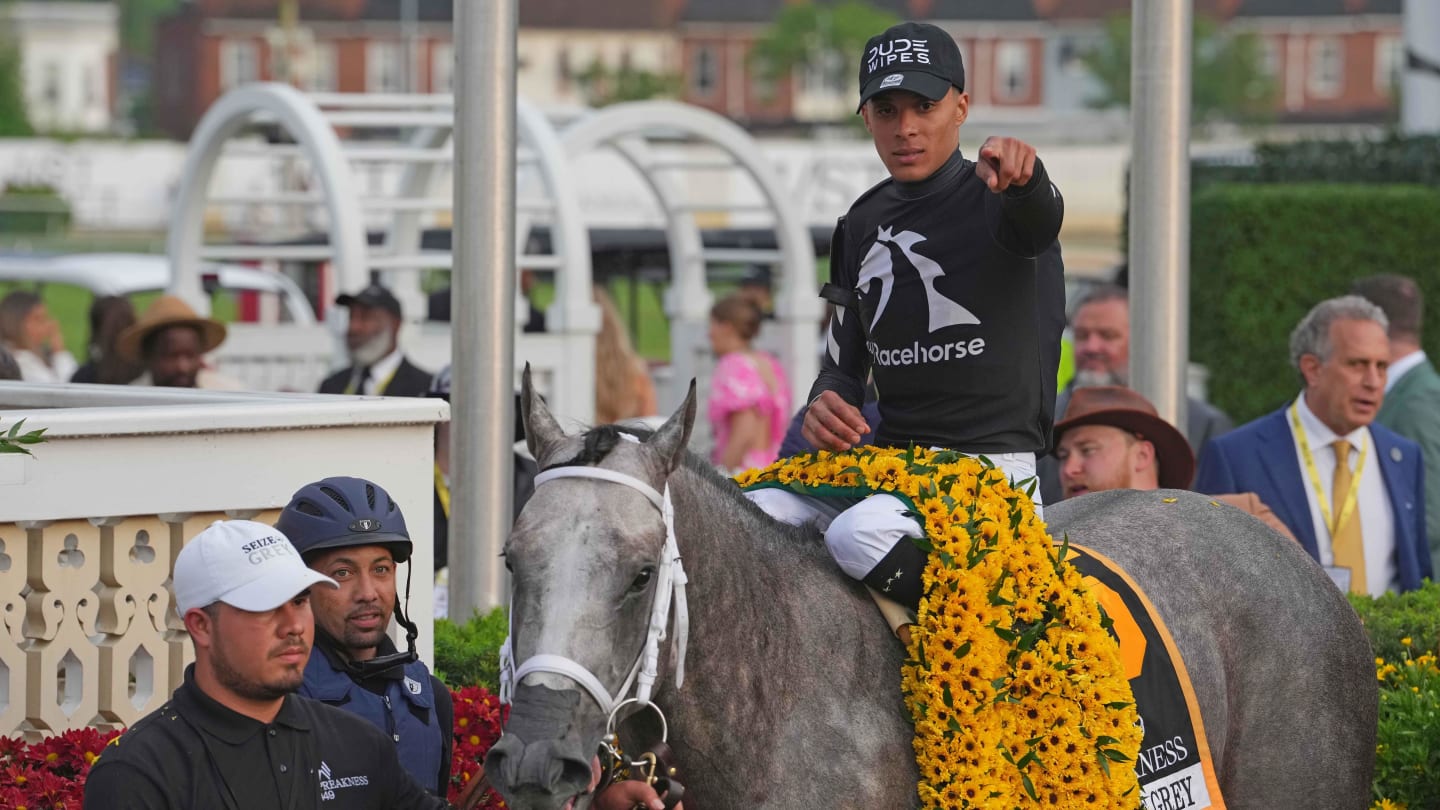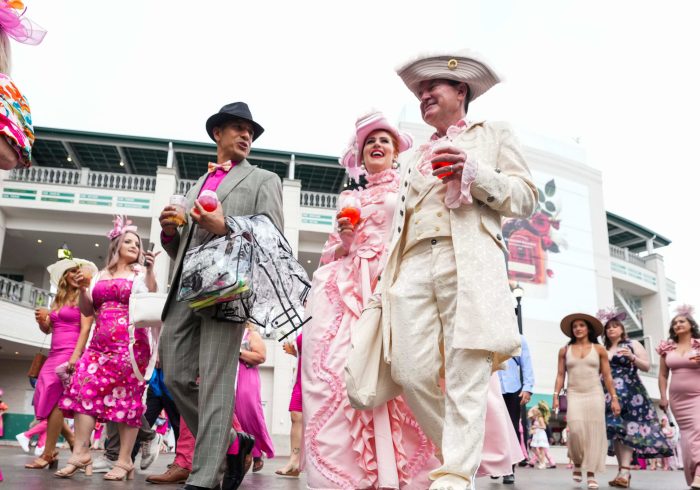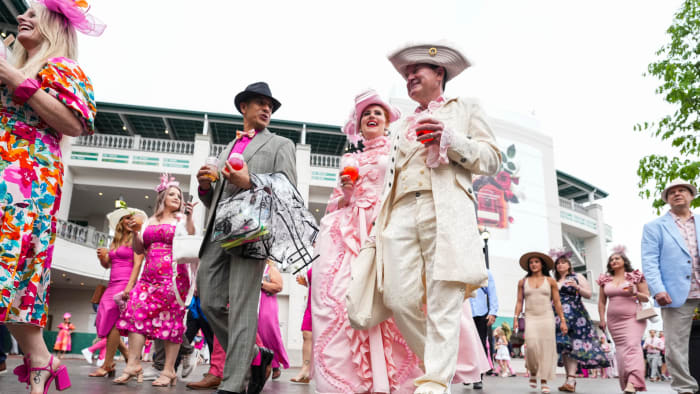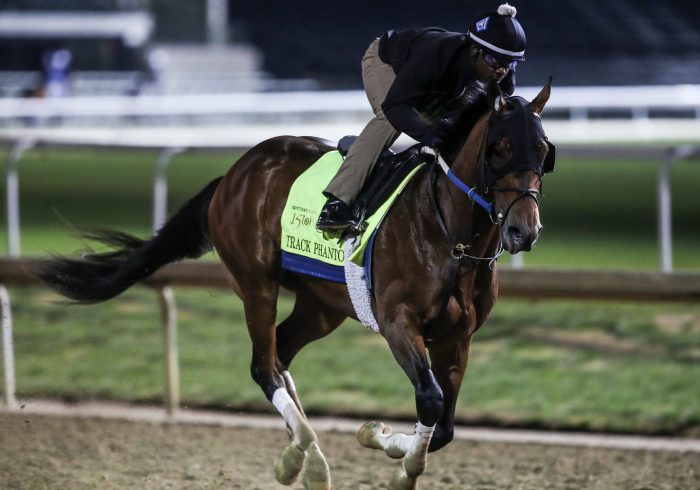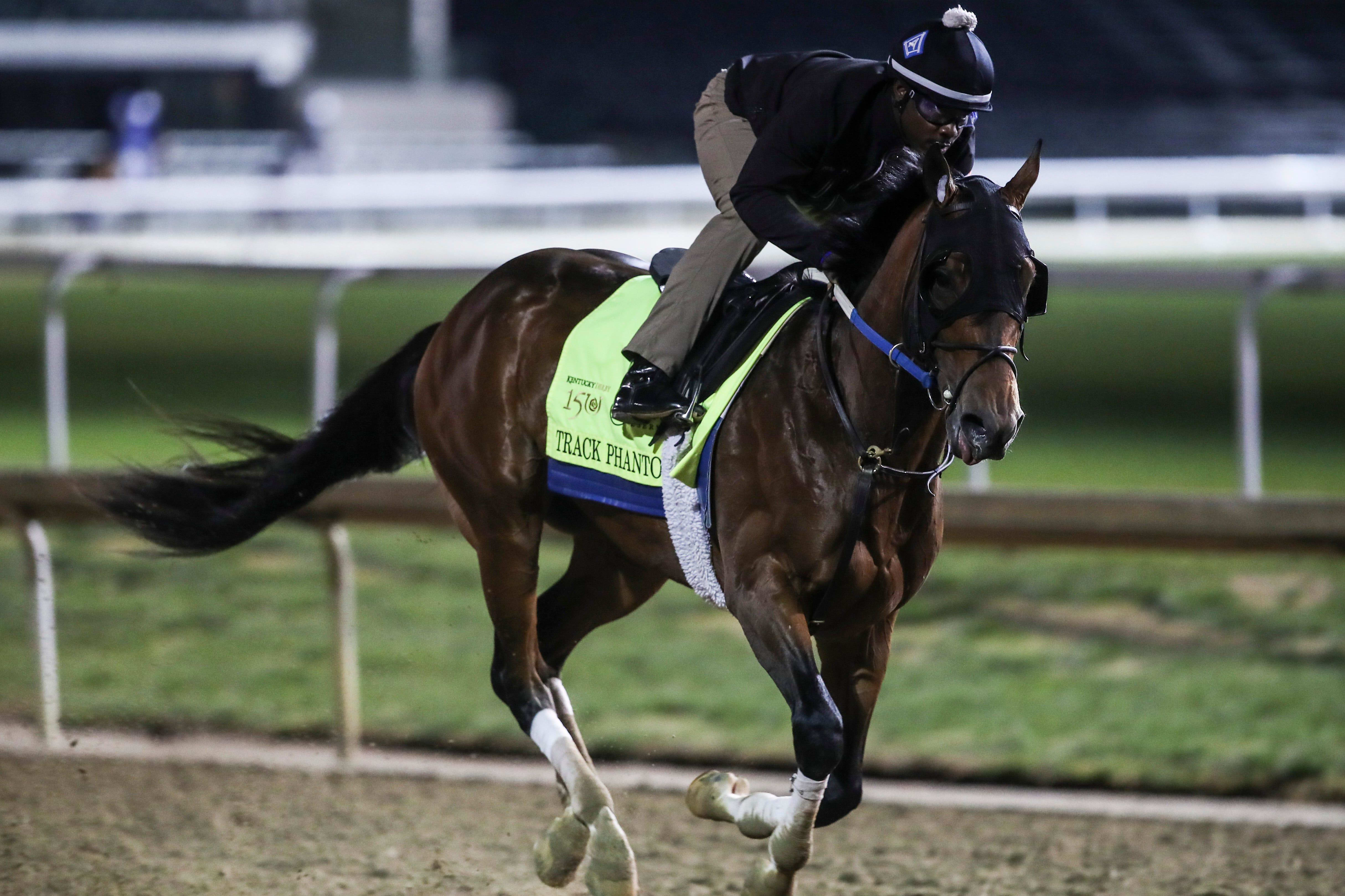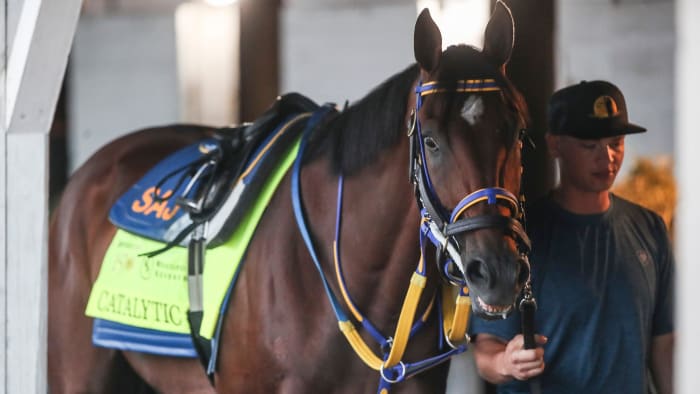The Kentucky Derby after-party has been reduced to a table (or stable) for one. The Preakness, the second leg of thoroughbred racing’s Triple Crown, will be contested Saturday with just a single horse moving on to Baltimore from Louisville: Derby winner Mage.
That’s it, that’s the list. The shortest list since before the Korean War.
It’s the first time in 75 years that only one Derby starter has entered the Preakness. In 1948, Citation won the Triple Crown in part by scaring off almost all the competition before it even began. He faced just five other horses in the first leg, three others in the second leg and seven in the Belmont.
Today, the lack of carryover from Derby to Preakness says as much about the anachronistic Triple Crown schedule as it does anything else. Modern thoroughbreds don’t race every two weeks, which is the requirement here if horses want to run in both. If Mage’s connections didn’t have an active Triple Crown bid, they probably wouldn’t be in Baltimore, either. (And even that wasn’t enough to get 2022 fluke Derby winner Rich Strike to enter the Preakness.)
The spacing between Mage’s four career races prior to this one: four weeks, four weeks and five weeks. Of the eight Preakness entrants, none has ever raced on fewer than three weeks’ rest. Other than Mage, the average time elapsed for the other seven Preakness horses since their last race will be 34 days on Saturday.
Mage, who won at Churchill Downs, is the only Kentucky Derby entrant taking part in the Preakness.
Julio Cortez/AP
Perhaps this lack of carryover from Derby to Preakness is an exception, but even then it’s not much of one. It’s now commonplace for horses that run in the Derby to skip the Preakness and point toward the Belmont in June—if not later in the summer. Still, horse racing continues to cling to its ancient calendar, even if its spring 3-year-old stars are no longer conditioned in a manner to adhere to it.
The format I’ve long favored is keeping the Derby on the first Saturday in May, running the Preakness on the first Saturday in June (or Memorial Day weekend) and then the Belmont on the Fourth of July. The Fourth is a sports broadcast desert, when the only competitions are hot dog-eating contests and midseason baseball games.
Some have broached an even wider spacing between races.
“I did see a format presented, on Twitter or something, where they ran the Derby in May, and then in July, ran the Preakness, and then in October, you ran the Belmont,” said Hall of Fame trainer Shug McGaughey, who will have 15–1 shot Perform in the Preakness. “I didn’t think that was that bad of an idea. I don’t know if it was something I’d vote for or not. But if they came up with it, I don’t think I would fight it too much. But I am a traditionalist. I hate to see them keep changing a lot of different things. But it’s different times now.”
Anything that runs into football season risks being ignored completely by a mainstream audience, so that seems like too long a Triple Crown season. But it no longer needs to be condensed to three races in five weeks. That’s begging for mass defections by Derby horses.
And frankly, there already were enough of those before the Run for the Roses on May 6. Aspiring Derby entrant Wild On Ice had to be euthanized after a training injury, and five Derby horses scratched the week of the race—the most since 1936. That included the race-day sidelining of favored Forte by a Kentucky Horse Racing Commission veterinarian due to what was characterized as a minor issue with his right front leg.
Forte originally appeared headed to the Preakness to take on Mage, a horse Forte had already beaten twice this year, but that was halted by safeguards against running an unsound horse. The KHRC and the Horseracing Integrity and Safety Authority (HISA) have rules that sideline horses who are put on the vet list for soundness concerns for 14 days, after which they must produce a satisfactory workout and a negative blood sample to return to racing.
So maybe we’ll see Forte in New York for the Belmont June 10th. Maybe not. Without him, the collection of horses taking on Mage lacks much gravitas—but there is a trainer of high intrigue on the grounds at Pimlico Race Course.
Bob Baffert is back. The most accomplished trainer in the sport was banned from the 2022 Triple Crown after a succession of race-day medication violations for his horses, and Churchill Downs tacked on a second-year suspension keeping him out of the Derby. But he’s free to contest this Preakness with National Treasure, the 4–1 third choice in the morning line.
“They just hung me out to dry,” Baffert told The Athletic this week, saying he was unfairly singled out and penalized in what was a long and bitter dispute with Churchill Downs. There is some sympathy within racing for Baffert, but also many who believe he got what he deserved.
The presence of Baffert, emerging from a cloud of controversy, combines with the absence of so many Derby horses after a spring of tragedy and attrition to form a microcosm of the sport’s issues.
Seven horses died at Churchill Downs from April 27–May 6. An eighth was euthanized on the track in front of a grandstand of horrified Mother’s Day spectators after breaking down May 14. With that grim backdrop, plus ongoing controversies about medication and a dwindling core of 3-year-old standouts, this Preakness is more about what’s wrong with horse racing than what’s right.
Mage might not have a lot to overcome in terms of competition Saturday, but the Kentucky Derby champion has significant work to do to rewrite the negative narrative of this Triple Crown campaign.
